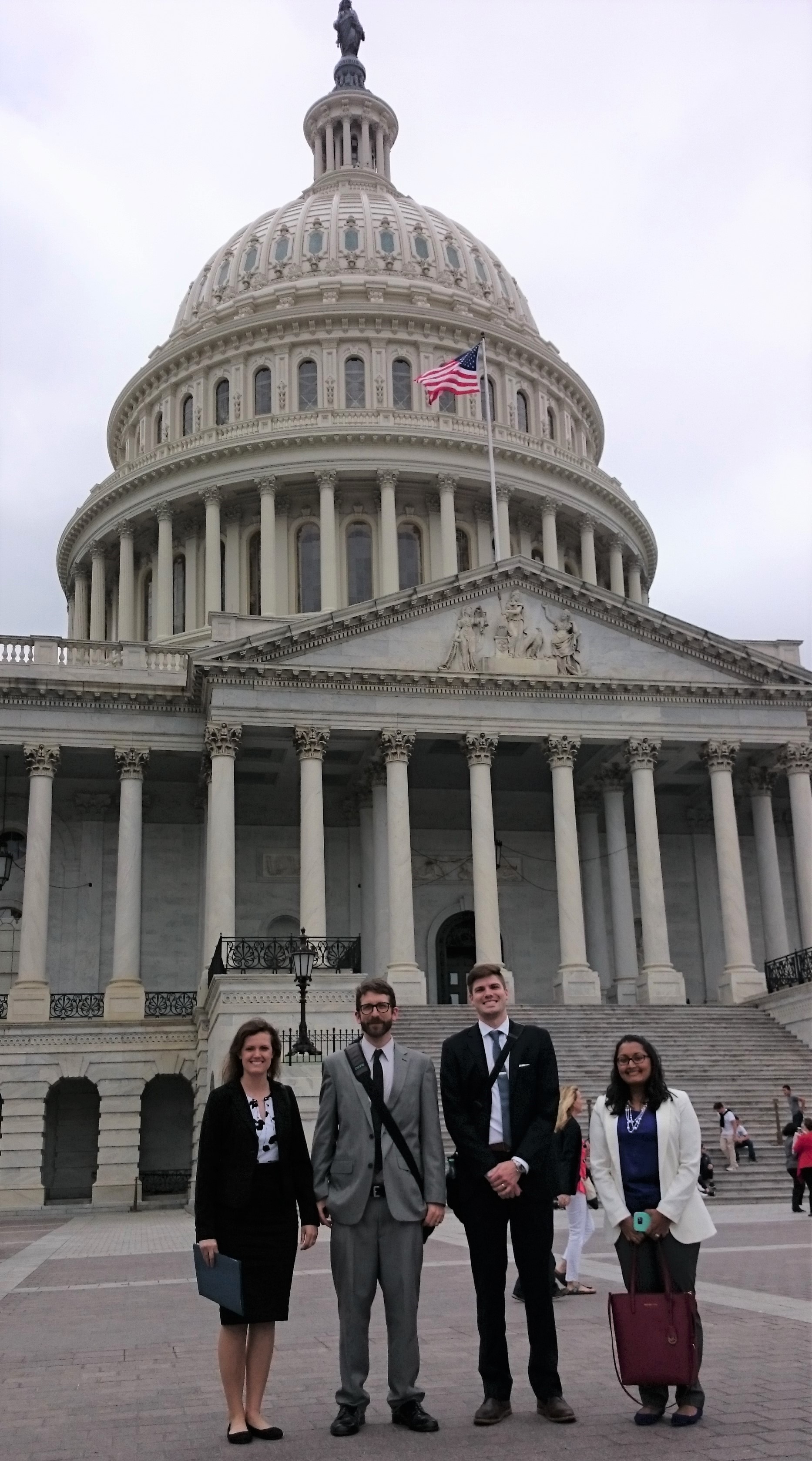On Capitol Hill, a GSPA winner sees firsthand “why it’s so important to have scientists present, in person, to ensure that our voices are heard”
A guest post by Ben Taylor (Columbia University), 2017 ESA Graduate Student Policy Award (GSPA) recipient. This year’s six award winners traveled to Washington, D.C. at the end of April for policy experience and training.

Sarah Handlon (University of Cincinnati), GSPA recipients Ben Taylor (Columbia University) and Tyler Coverdale (Princeton University), and Lushani Nanayakkara (Association for the Sciences of Limnology and Oceanography) outside the U.S. Capitol Building in Washington, DC in April 2017.
The GSPA program is designed to be an enlightening and intense three days, and it delivered on that in a wonderful fashion. From getting to see the ESA headquarters to talking with early career scientists working in the federal government to representing ESA in congressional meetings, the policy award program was a great learning experience on so many levels.
When I arrived in Washington, I was, honestly, quite nervous about the upcoming congressional meetings. This isn’t an interaction that ecology graduate students encounter frequently, and the gravity of the current political climate made the upcoming meetings with senators and representatives seem daunting. One of the best parts of the program, though, was how warmly and thoroughly the ESA staff welcomed us and walked us through exactly how the meetings would be conducted. The training that we received on how the federal budget is structured, how science funding fits into the overall budget, and what we could do to encourage our congressional representatives to push for science funding was one of the best parts of the entire experience. It’s not to say that I wasn’t still nervous walking into our first senator’s office, but the preparation that we received made a huge difference in how I approached those meetings and how successful I think our day on Capitol Hill was.
One aspect of our day of congressional meetings that I found surprising was how bustling the congressional office buildings are with all walks of people. In any given hallway, we passed by congressional aides, lobbyists, and lots of private citizens there to advocate for their chosen cause. This served as an immediate reminder of just how many constituent interests our representatives have to consider, and why it’s so important to have scientists present, in person, to ensure that our voices are heard when funding decisions are being made. In our meetings with congressional offices, this was even more apparent. While some offices were more receptive to our request for science funding than others, almost all of them seemed genuinely interested in our work and appreciative of our effort to come speak with them. One of the offices even specifically employed a scientist as a full-time staffer to provide a permanent in-house voice for science! Walking away from our day of congressional meetings, I had a completely new appreciation for how important it is to create and maintain contact with our Members of Congress – they really do listen, and although they don’t always vote as I’d wish, I am now an avid believer that the more voices they hear speaking up for science, the more support they will give it in the federal budget. Since the Policy Award Program in April, I’ve taken the knowledge and confidence I gained from the experience to meet with one of my senator’s district office staff, and I plan on continuing to build these types of relationships.
The entire GSPA experience was filled with wonderful people that gave me hope for the future relationship between government and science. We are now in an age when scientists can no longer take for granted financial support of the federal government, but through the GSPA program I met a great group of graduate and early career ecologists that demonstrate the upcoming generation will be well-prepared to actively engage with the federal government for continued support of science funding.